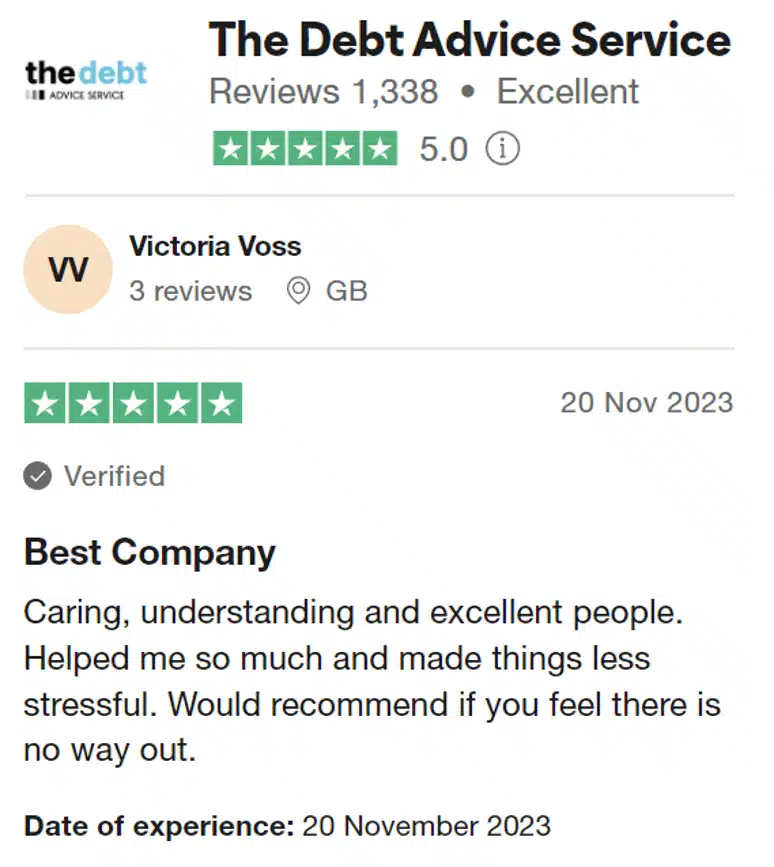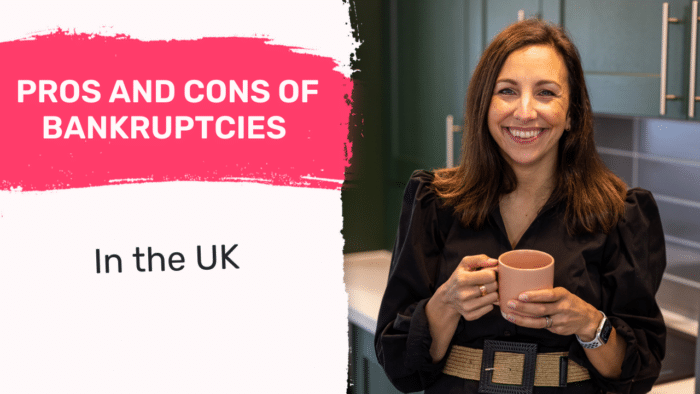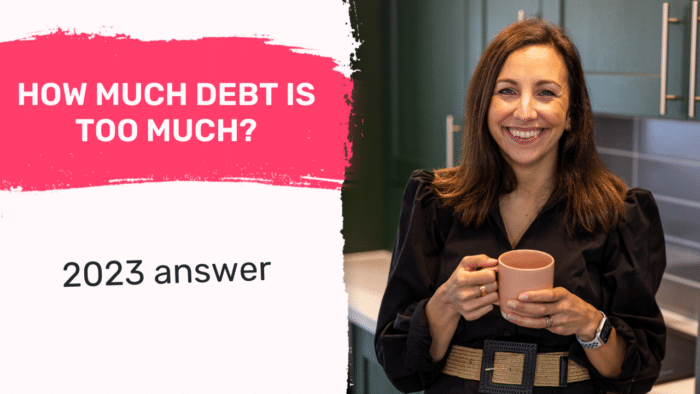Should I Pay Phillips & Cohen Associates Debt Collector?
For free & impartial money advice you can visit MoneyHelper. We work with The Debt Advice Service who provide information about your options. This isn’t a full fact-find, some debt solutions may not be suitable in all circumstances, ongoing fees might apply & your credit rating may be affected.
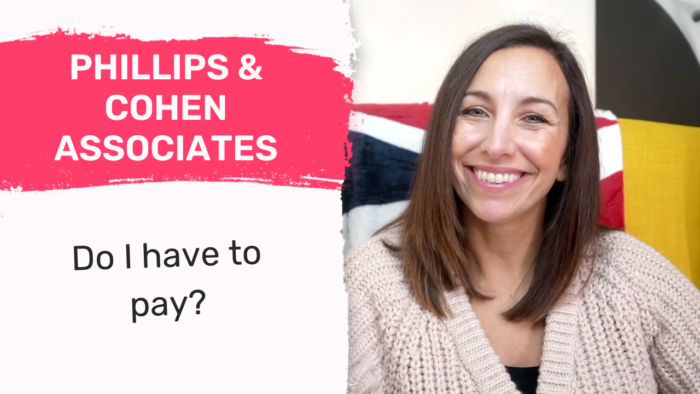
For free & impartial money advice you can visit MoneyHelper. We work with The Debt Advice Service who provide information about your options. This isn’t a full fact-find, some debt solutions may not be suitable in all circumstances, ongoing fees might apply & your credit rating may be affected.
Are you worried about a letter or call from Phillips & Cohen Associates? Wondering if you should pay the debt they say you owe?
You’re not alone. Every month, more than 12,000 people visit this website seeking advice on debt worries.
In this easy-to-read guide, we’ll cover:
- If Phillips & Cohen is a real firm
- If you have to pay them
- How to know if the debt is really yours
- What happens if you don’t pay them
- How you can stop them from contacting you
Dealing with debt collectors can be scary; it can make you feel stressed and unsure about what to do. Some of our team have been in your shoes before.
We’re here to help you understand your options. Let’s dive in!
Is the debt too old to enforce?
Debt is too old to enforce when it’s six years old. A judge won’t take on cases that involve older debts.
It means a debt recovery company can’t start legal proceedings against you and you can’t get a County Court Judgement (CCJ) either!
However, a debt is only statute barred if it meets certain criteria. It means you should check this out before responding to PCA and telling them the debt can’t be enforced!
It’s one way you could get out of paying what you may owe to PCA or a client they’re acting on behalf of!
Is PCA chasing the wrong person?
You should always check all the details found in a debt letter you get from Phillips & Cohen Associates.
Phillips & Cohen could be chasing the wrong person for money owed on a debt they purchased. Or it could be one which they’re attempting to collect for another business.
Can you ask Phillips & Cohen Associates to prove the debt is yours?
Absolutely you can. In fact, you should write to the debt collection and ask them to ‘prove it’ even if the debt is yours.
By sending the request via registered post, you gain time and prevent the PCA from escalating the matter.
Not only this, but you also make them work for their money!
How a debt solution could help
Some debt solutions can:
- Stop nasty calls from creditors
- Freeze interest and charges
- Reduce your monthly
A few debt solutions can even result in writing off some of your debt.
Here’s an example:
Situation
| Monthly income | £2,504 |
| Monthly expenses | £2,345 |
| Total debt | £32,049 |
Monthly debt repayments
| Before | £587 |
| After | £158 |
£429 reduction in monthly payments
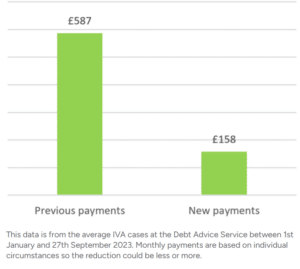
If you want to learn what debt solutions are available to you, click the button below to get started.
What happens when PCA can’t prove the debt?
You may find the debt letter contains all the relevant information proving the debt is yours!
But if the details in the letter are not clear or the amount is wrong, you should write back to PCA to let them know.
Debt recovery agencies must provide you with solid proof you owe the money. They can’t just say you do and expect or demand that you pay!
If Phillips & Cohen can’t prove the debt by providing an authenticated copy of an agreement you signed, they can’t make you pay!
In short, a PCA could take you to court, but without solid evidence the debt is yours, a judge wouldn’t rule in their favour!
What happens when debt collectors prove the debt?
When Phillips & Cohen proves you owe money by providing an authenticated copy of an agreement, that’s it. You’ll have to pay what’s owed.
However, you should seek advice before you admit or fork any money over to a debt recovery business.
You could contact an independent debt adviser or one of the leading UK charities that provide free debt advice.
Phillips & Cohen Associates must let you seek independent advice so you get to know the best debt solutions available to you!
Thousands have already tackled their debt
Every day our partners, The Debt Advice Service, help people find out whether they can lower their repayments and finally tackle or write off some of their debt.

Natasha
I’d recommend this firm to anyone struggling with debt – my mind has been put to rest, all is getting sorted.
Reviews shown are for The Debt Advice Service.
Should you ignore debt collection agencies?
No. Things only get worse, more expensive and more stressful when you ignore a debt collection agency.
So, when you receive a letter, email, text or phone call from PCA, it’s best to respond. Maybe you have a debt with a utility company or a bank loan that the PCA is chasing you for.
Maybe, you don’t owe money to anyone and PCA is chasing the wrong person. It happens!
You may not realise the debt is too old to enforce when you decide to bin a debt letter rather than respond to it!
What happens when you ignore PCA?
Things could get more expensive and stressful when you ignore a debt letter from Phillips & Cohen Associates.
Firstly, you may not discover important information about the debt which includes:
- The debt is statute barred and therefore it’s too old to enforce
- Phillips & Cohen Associates is chasing the wrong debtor because the debt isn’t even yours
So, ignoring the debt letter doesn’t make the problem go away. Moreover, you could be hassled for something that’s not even in your name.
A debt recovery company won’t realise the debt isn’t yours and could escalate things if you don’t respond to them!
What can PCA legally do?
All recognised debt collection agencies must follow the law, privacy legislation and the CSA Code of Conduct.
As such, when they contact you, they must remain within the law. A debt recovery business like Phillips & Cohen Association has the right to:
- Contact you whether by phone, text, email, letter or in person
- Talk to you civilly about an alleged debt showing understanding and empathy relating to your personal circumstances
- Ask you to pay them the amount outstanding rather than to an original creditor. Whether you make a payment in full or agree to a payment plan
- Report defaults to credit reference agencies which would impact your credit rating
You can’t prevent a debt recovery company from contacting you over an alleged debt because it’s within their rights!
What can’t PCA do?
There are things that Phillips & Cohen can and cannot do. I’ve listed actions that are unlawful below:
- Force their way into your property, clamp vehicles or seize possessions to sell at auction
- Pretend their legal power is the same as that of a court-appointed enforcement agent (previously known as a bailiff)
- Visit you in the workplace
- Discuss an alleged debt with your boss which contravenes your privacy rights
- Talk to your neighbours, friends, or a family member about an alleged debt which also breaches UK privacy laws
- Pressure you into applying for another loan to repay what’s owed
- Harass you with constant phone calls, texts, emails etc
- Threaten you in any way
If PCA acts unlawfully or they don’t abide by the CSA Code of Conduct, you should file a complaint with them straight away.
You should allow them enough time to make things right but if they don’t, you have the right to escalate your complaint to the Financial Ombudsman Service (FOS).
Can you stop Phillips & Cohen from contacting you?
You can’t prevent Phillips & Cohen Associates from contacting you. But you can write to PCA and tell them how to contact you.
For instance, telling PCA to only get in touch with you in writing is a good move. You’ll have a record of all their correspondence which could prove invaluable if they take you to court!
Should you sign letters to PCA?
No. You should avoid signing any letters you send to a debt collection agency. Not all of them are ethical and some may duplicate your signature on other documents.
Also, always send letters to Phillips & Cohen via registered post.
It’s highly illegal for them to do so, but it’s a tactic unscrupulous debt collectors may use!
What are your rights when a debt collector contacts you?
You have the right to ask a field agent to leave your property if they visit you at home.
Moreover, a field agent must leave when you ask them to!
You have the right to speak to a debt collection agent through a letterbox or through an open upstairs window.
You don’t have to open the door to a field agent and should keep all your doors locked when they arrive!
A debt collection agent can’t just turn up at your home unexpectedly. They must write to you first and tell you when they intend on visiting you at home!
You have the right to seek independent debt advice and PCA must allow you enough time to do so.
It’s your right to establish which debt solution could get you back on track financially.
You can report a debt recovery business for inappropriate or unlawful behaviour to the Financial Ombudsman Service (FOS). Provided you filed a complaint with PCA first!
» TAKE ACTION NOW: Fill out the short debt form
Can you complain about Phillips & Cohen Associates?
Yes. You must file a complaint with Phillips & Cohen Associates before you lodge one with the Financial Ombudsman Service (FOS).
This allows the debt recovery business to put things right but if they don’t you can escalate your complaint to the FOS.
The FOS should investigate your complaint in a timely manner and if they find PCA acted unlawfully, you could receive compensation!
How do you contact Phillips & Cohen Associates?
It’s always better to remain in contact with a debt recovery business. First, it prevents them from escalating the matter. Second, you could find out the debt isn’t yours or that it’s statute barred!
I’ve listed the UK contact details for Phillips & Cohen Associates if you have outstanding debts in the table below:
| Address | Building 5, Floor 9, Exchange Quay, Manchester, M5 3EF, UK |
| Phone | 0333 555 1051 customer service hotline |
| [email protected] | |
| Website | https://phillips-cohen.co.uk/consumers/ |
